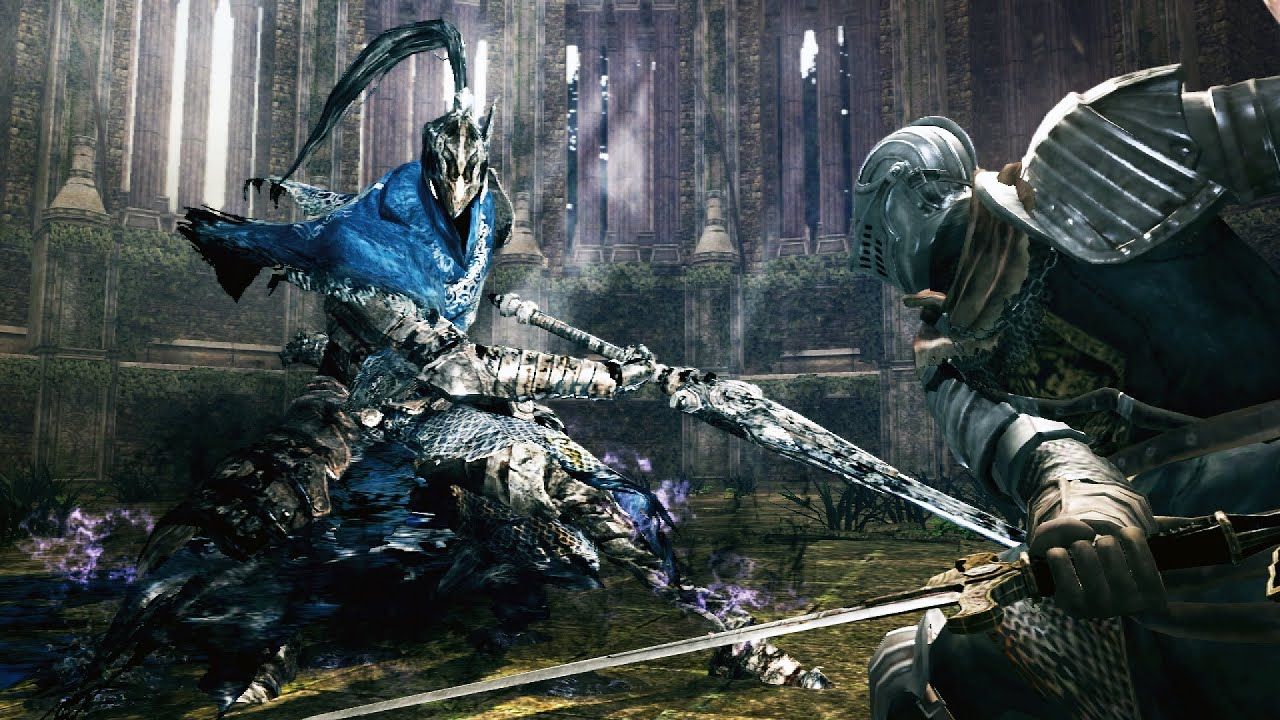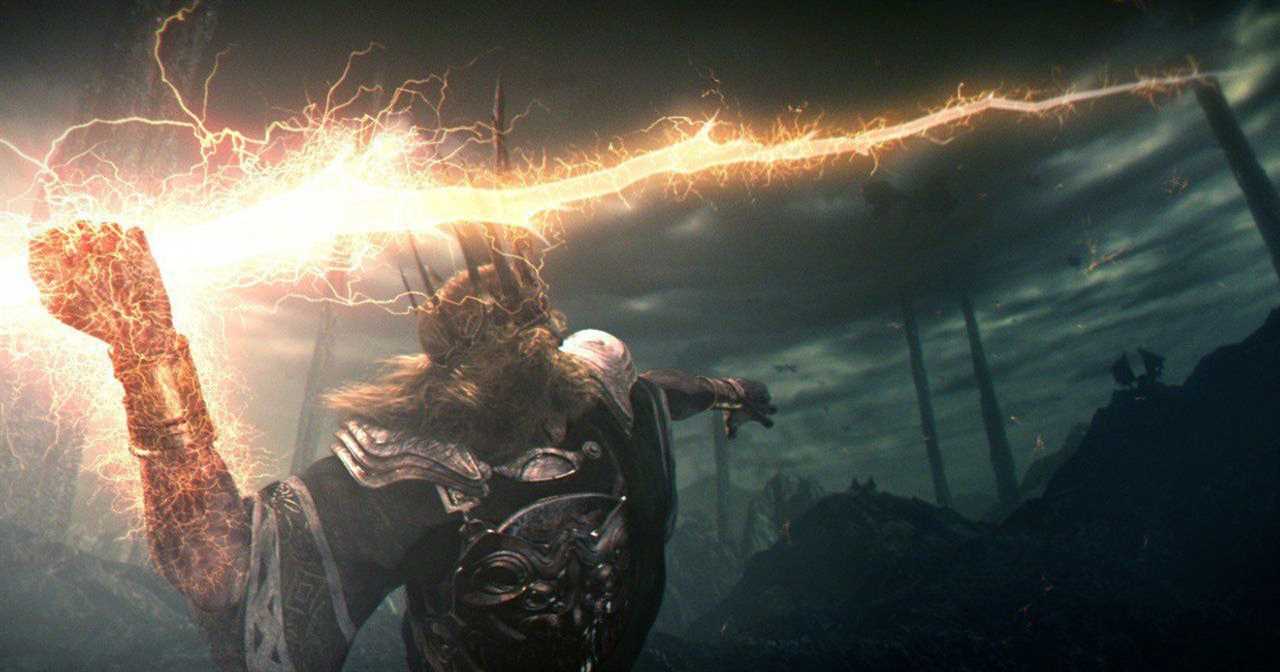When anyone talks about Dark Souls or any other recent FromSoftware title, the first thing mentioned is how difficult the games are. While the difficulty is undoubtedly part of the appeal of the Souls franchise, it’s unfair to reduce FromSoftware games to this element, especially since Dark Souls revolutionized the AAA industry in a lot of different ways. And I hate to break it to you, but Dark Souls’ most significant legacy is not the difficulty but its unique worldbuilding.
Sure, Dark Souls and all its sibling games will forever be remembered for the epic boss battles and the brutal paths to get to said bosses, always filled with enemies and traps that hold nothing back in their attempts to kill you. However, the difficulty in Dark Souls is not there for the sake of difficulty only, but it’s actually a narrative tool that helps to tell some of the most ambitious stories ever told in games. And that’s why so many games, such as Lords of the Fallen, fail to copy the Dark Souls formula: Too much focus is put on the challenge and not enough on the design of the story.
But how does Dark Souls build its difficulty? And how is the related primary goal of worldbuilding executed? Get your sword and shield; we are going on an adventure through the design and history of the franchise.
The ‘Git Gud’ Confusion

FromSoftware was not just trying to make a hard game when they built Demon’s Souls. While Demon’s Souls is indeed challenging, its difficulty comes from pattern memorization and trained reflexes. The same two elements are the pillars of every other game FromSoftware developed since then. Demon’s Souls never demands perfection from its players, only careful observation so that a solution can be found for each combat sequence. The solution can be as simple as waiting for the right time to hit a boss, but it can also involve objects scattered about in the scenario, such as ballistae. That’s why a lot of the boss battles in the Souls franchise feel like puzzles sometimes, as there are often gimmicks that’ll give you the edge against some of the game’s most powerful creatures. In that sense, Souls bosses are inspired by The Legend of Zelda, another franchise with memorable boss battles that mix timing with problem-solving.
Demon’s Souls, however, was confined to the PlayStation 3 when it was first released in 2009, and the franchise didn’t make as big of a splash as Dark Souls would between 2011 and 2012. However, contrary to Demon’s Souls, Dark Souls was not exclusive, which means many more potential players had access to it from the start. Also, as PC gamers are pretty vocal about their gaming experiences, Dark Souls would soon get a lot of free publicity when it came to the PC in 2012. That’s because many players hated Dark Souls with all their, well, souls, claiming that the game was unfair. On the other side of the discussion, people were happy to find a AAA game challenging and blamed the lack of skills of other players for their own failures.
Let’s get something clear: Dark Souls does have its unfair moments. (Bed of Chaos, I’m looking at you). However, in general, the game is not that difficult. Dark Souls only became so divisive because the AAA industry, at the time, followed a completely different path regarding difficulty, by adding long tutorials and holding the player’s hand during the entire adventure in hopes that an easier experience could reach more people. While adjustable difficulty is always a welcome addition to increase a game’s accessibility, especially for people with disabilities, many AAA titles have a straightforward approach that makes them dull, even at harder difficulty levels. On the other hand, Dark Souls is all about problem-solving. In the tutorial area, it teaches the player that not every challenge can be beaten by brute force, and sometimes you've just got to be clever. For example, instead of killing a boss with a broken sword, you might want to wait for better gear and maybe even find an advantage point to plunge attack.
Player’s were not used to solving problems with AAA games in 2011, with button-mashing being sometimes the only strategy used to beat any and every challenge. So, it makes sense that many people (myself included) were unsettled by Dark Soul’s introduction. Instead of claiming that the game was just too hard, though, players had the opportunity to understand how they could adapt to a new way of understanding difficulty and then enjoy one of the freshest experiences in gaming ever.
Unfortunately, many players, including fans of the franchise, got blocked in the somewhat false perception that the game is “super hard,” and all you need to do to beat it is to “git gud” (“get good” in Annoying Dialect). It didn’t help that FromSoftware realized the difficulty of their games was attracting a lot of attention and started to use this as a marketing tool. It is not random that the PC port of Dark Souls is named Prepare to Die. Nevertheless, Dark Souls’ difficulty would not be particularly memorable if it didn’t serve a greater purpose: It’s the game's worldbuilding that should get most of the praise.
A World in Ruins

Most action games create a background for the protagonist that justifies their powers and why they are the only ones capable of completing a dangerous mission. For example, God of War’s Kratos is the son of Zeus, blessed with the powers of the Greek Gods. In Skyrim, you play as a Dragonborn, a mortal born with the soul and power of a dragon. Devil May Cry’s Dante is a demon prince capable of harnessing the powers of Hell. In Dark Souls, you play as the Chosen Undead, but it doesn’t take long for the player to discover the truth about the prophecy: It’s actually a lie, put in place to guide lost souls who convince themselves they are more important than they actually are.
In Dark Souls, you don’t surpass every obstacle in your way because you are the Chosen One. You become the Chosen One if, and only if, you manage to beat every challenge. And if you can’t? Well, tough luck. There’s always another undead to blindly believe the sweet words that claim their life is more important than everyone else's. While navigating Lordran, the player meets dozens of undead who are also trying to follow the path of the Chosen One, abandoned the prophecy, or even rebelled against its lies. The game is trying to tell you that no one made you important, and everyone is as lost and confused as you are. That means you are not exceptional, but it also means it’s only your struggle that will define your achievements. You are not meant to beat Dark Souls, but victory is all yours to savor if you do.
Of course, the game beats you to a pulp, again, and again, and again. The hostile world of Dark Souls is trying to remind you that you are not a Chosen One, a powerful being capable of incredible feats. Instead, you are a simple person who decided to tackle a challenge that’s way beyond your capabilities. But you do become stronger as you persist on your path. And you do learn how to play as dirty as the game does to ensure your victory. Of course, you’ll die a lot, and each death is a reminder of your fragility. But by trying once more, you decide that no one can determine your fate, both as a player and as a character.
Dark Souls further subverts the internal logic of action games by also getting rid of most cutscenes. There’s an intro cutscene that explains the events that made the world become as it is, but then you are on your own. There’s no prophet or teacher to guide you on your adventures because, once again, you are not special. You are just a lost person wandering a world in ruins, trying to find some meaning for your own existence. You don’t get divine inspiration to tell you what to do next and what’s exactly going on. All you have to orientate yourself is what other characters tell you and what you learn by finding new items spread all over the world.
Since Dark Souls is set in the middle of a zombie apocalypse, there are no precise registries of world history, which creates a lot of contradiction. Nevertheless, even this helps teach the player that the world is a complex place and you must choose whom to trust. The narrative of Dark Souls is not told linearly, because its world is a living thing with hundreds of moving parts. And just like the kingdom of Lordran, the lore is crumbling into ruins.
It’s no wonder that so few games adopt the Dark Souls approach to worldbuilding. You cannot create different areas and stick everything together with cutscenes when the world itself is in charge of telling its own story. Each building must be placed in a way that reflects the power struggles between different factions. Each object must fit the grand scheme of things, adding something to the mythology and history of the world. Each NPC must behave accordingly to the fragmented pieces of information they have about the world around them. To have a coherent world that the players can discover by themselves, developers must pay attention to every little detail, a monumental work that demands coordinating thousands of different lore points.
Dark Soul’s most significant legacy can’t be its difficulty. Firstly, because the challenges of the franchise are perceived as harder than they are only because this franchise follows a different path than other AAA games, but most importantly, because the challenges are put into place to give life to a world where the narrative itself is interactable. Instead of telling the story linearly, Dark Souls builds an interconnected world where every element is related to the lore. This distinctive approach to worldbuilding is the main reason it stands apart among so many games.
-----------------------
By: Marco Vito Oddo
Title: Dark Souls' Difficulty Is Less Important Than Its Lore
Sourced From: collider.com/dark-souls-difficulty-lore-memes/
Published Date: Sat, 17 Jul 2021 15:30:15 GMT
Did you miss our previous article...
https://ballerawards.news/movies/watchmen-star-open-to-another-superhero-return






